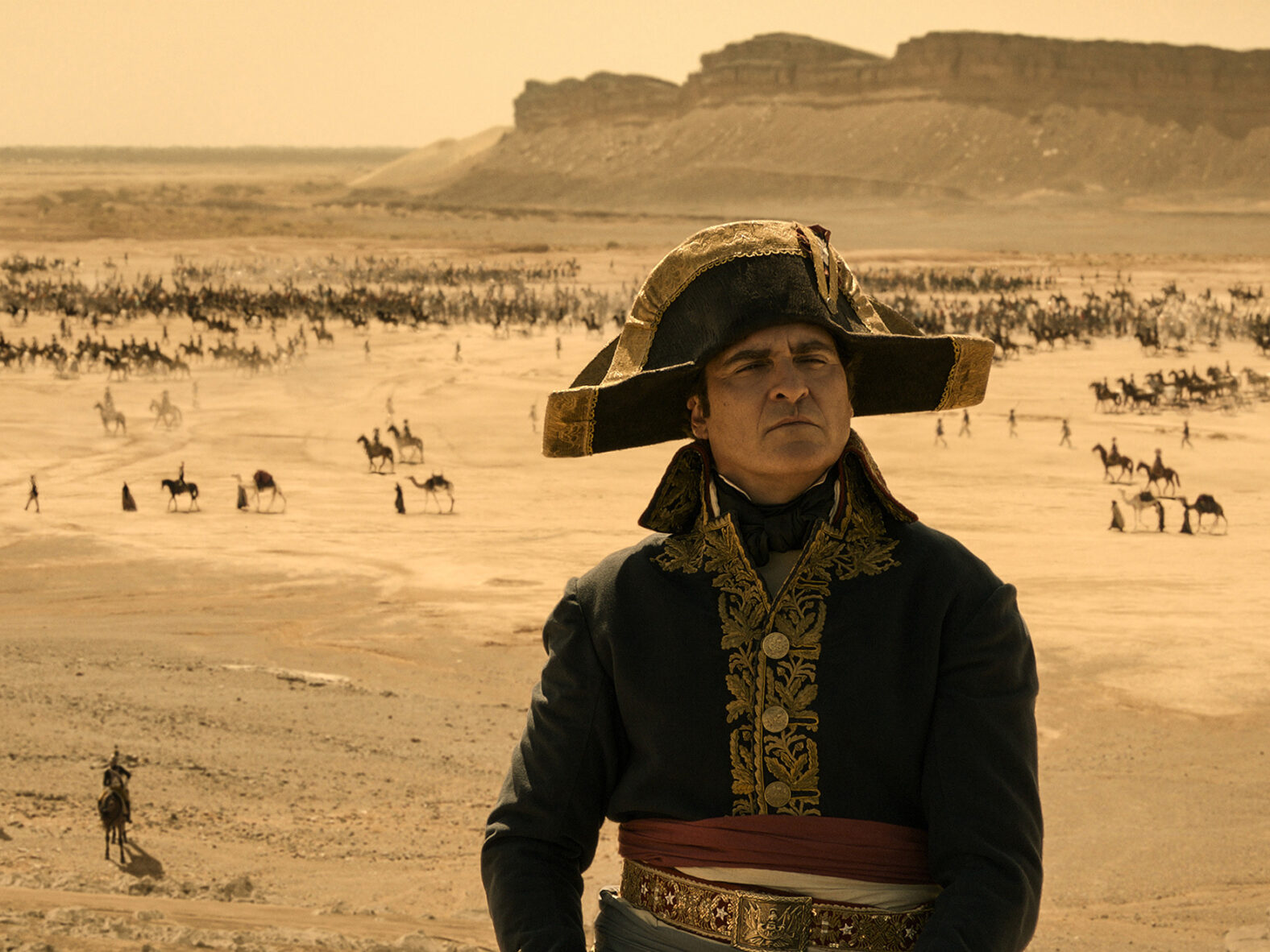France in the 1790s. The forming of the First Republic has led to great upheaval and revolution. Treason is the word of the day as massacres and public executions become common place amongst anti-royalist rhetoric. The “Reign of Terror” has truly begun, Queen Marie Antoinette has been beheaded and Napoleon Bonaparte (Joaquin Phoenix) is looking for a promotion.
So begins the rise of one of the greatest military minds the world has ever known. A man of overwhelming ambition, he would stop at nothing to achieve power and secure victory. From soldier to commander to the Emperor of France, this charming man will lead France through dozens of battles and conflicts. Alliances are formed then broken. The Napoleonic Wars will rage across most of Europe, Southern Africa, and parts of the Middle East. The resulting casualties reaching into the millions with Napoleon leading the charge in the name of France.
But for all of his military prowess there is one person in his life who will not bend to his will. His beloved Joséphine (Vanessa Kirby), a widow and former royal who herself did whatever she needed to do to survive the Reign of Terror. Their complicated relationship exposes Napoleon‘s insecurities. Over the years, Napoleon will be challenged on the battlefield and at home, unable to conceive a child. The people of France will rejoice his name but his ambitions will consume him, torn between his sense of legacy and affairs of the heart.
Very few modern filmmakers are known for their abilities in portraying sweeping epics as director Ridley Scott. There have been many films and TV productions about the notorious Napoleon Bonaparte but few have been made on such a grand scale as this, portraying his rise and fall with much focus on the troubled relationship with his true love, Joséphine. The film, written by David Scarpa, reunites Ridley Scott with Oscar winner Joaquin Phoenix, more than two decades after making the similarly extravagant epic, Gladiator (2000).
It seems fitting as it’s almost that far back since Hollywood has had the guts to make a war film on this level for adults. In the need to turn a profit, the horrors of warfare have been scaled back in exchange for a more family friendly (profitable) rating. So, it was like stepping into a time machine seeing this film’s violent, impressive, and practical battle sequences. Undoubtedly, some of the most incredible ever brought to film.
This is really where Ridley Scott shines as a filmmaker. He can do low budget dramas as well, no doubt. But it was in this film’s monumental battle sequences where my jaw was continually hitting the floor. As a period film, the sheer amount of costumes and military garb on display is equally awe-inspiring. The film has two credited costume designers and you can see why, as even between them David Crossman and Oscar winner Janty Yates have managed a herculean task.
However, it’s an achievement that is let down somewhat by the film’s moody colour grading. While lavish galas and fancy parties show off the film’s beautiful dresses and gowns, the battle scenes fare worse. Those incredible battle scenes often have a dour washed out look to them, detracting from the vibrancy of the uniforms. Nowhere is this better shown than when, in supposed sunlight, the blue on the French flag appears more like green!
The grand scale of the overall story and the attempts to cover everything in one film a fool’s errand. Currently at 2 hours and 38 minutes, there is apparently a 4-hour director’s cut of the film coming soon but I’m not sure if even that would be sufficient time to cover everything. Still, in this apparently cut down version, it’s difficult to grasp exactly what is happening as we speed-run through 20 years of Napoleon‘s personal and professional life.
We leapfrog from one battle to the next without adequate context as to who is who or what is happening. Characters, particularly family members, vanish without reason. Our two lovers are the only figures to get adequate coverage and yet still something feels missing. Phoenix and Kirby bounce off each other well with their scenes, allowing Phoenix to play up the petulant childishness of Napoleon. But if the film didn’t tell us they’d been together for 15 years, I’d never have guessed!
There is a reason many other Napoleon films focus on smaller segments of the man’s career. All in all, it feels like a film best viewed with prior knowledge of Napoleon‘s accomplishments. That sabre cuts both ways however, as it would reveal the film’s many historical inaccuracies. Sure to be a thorn in the side of any history buffs in the audience.
Napoleon is an incredible achievement in many technical aspects of filmmaking. The costume design, practical effects, and the impressive scope of everything is stunning. But the film’s story suffers thanks to being edited down to a more palatable theatrical runtime. Perhaps the director’s cut will save the film on future viewings but I think one film alone was insufficient to cover the story the filmmakers wished to tell.
As such, as brilliant as it is through blind ambition, Napoleon the film, like Napoleon the commander, bites off more than it can chew.
